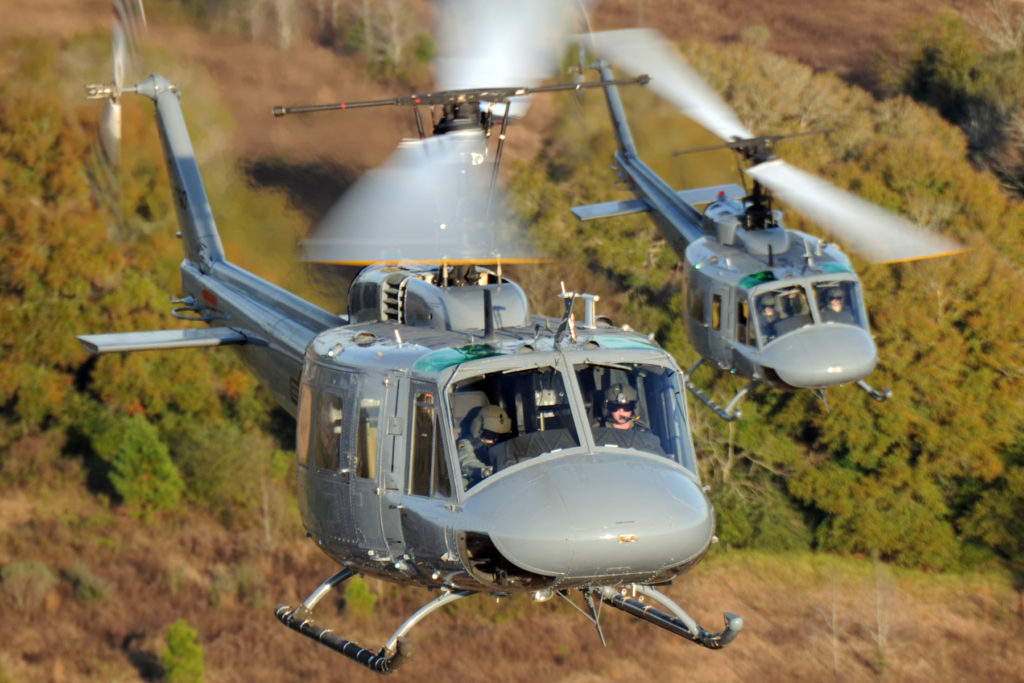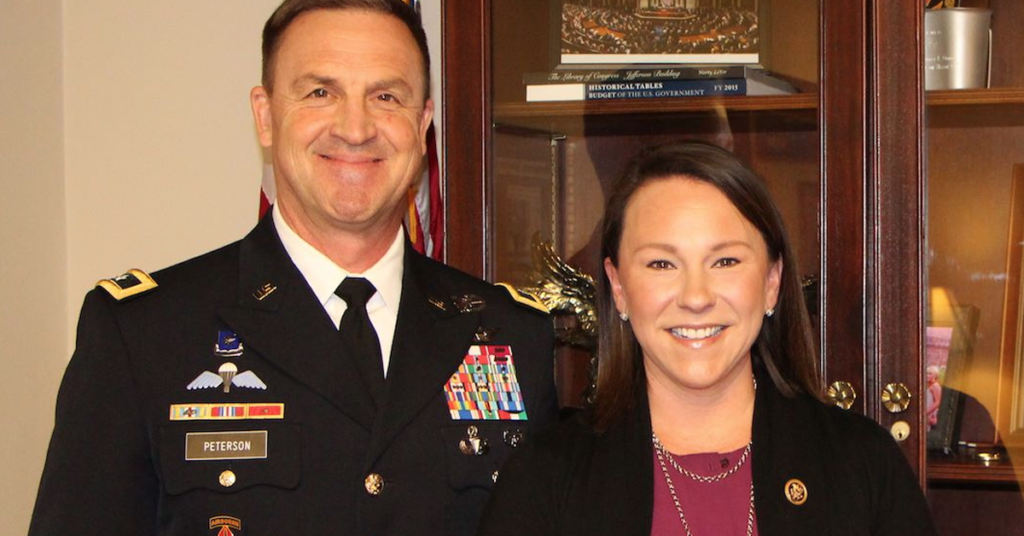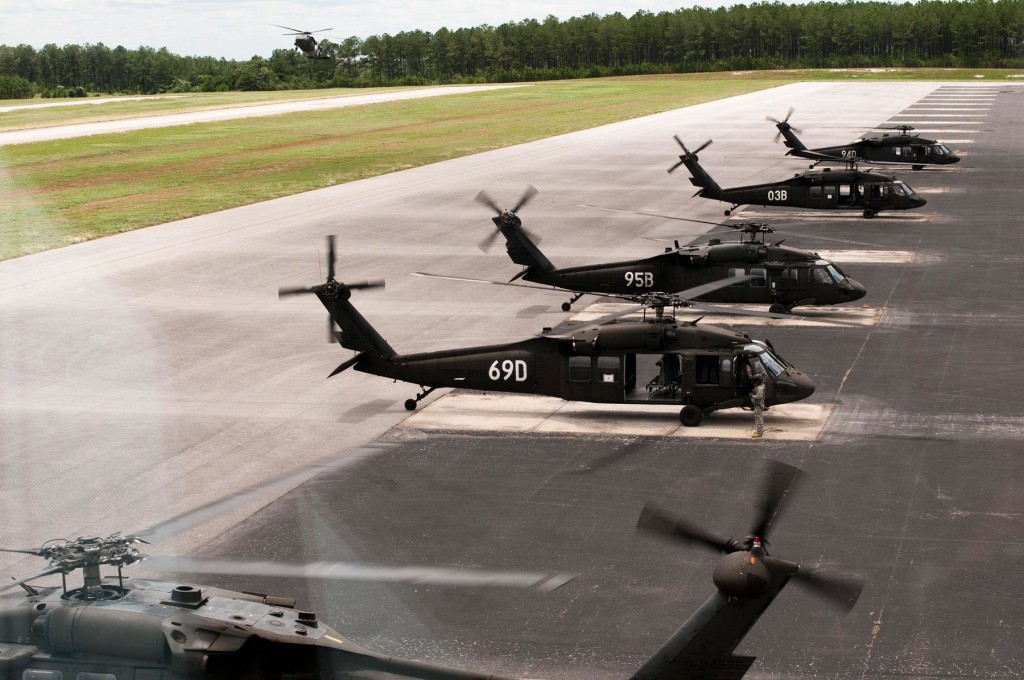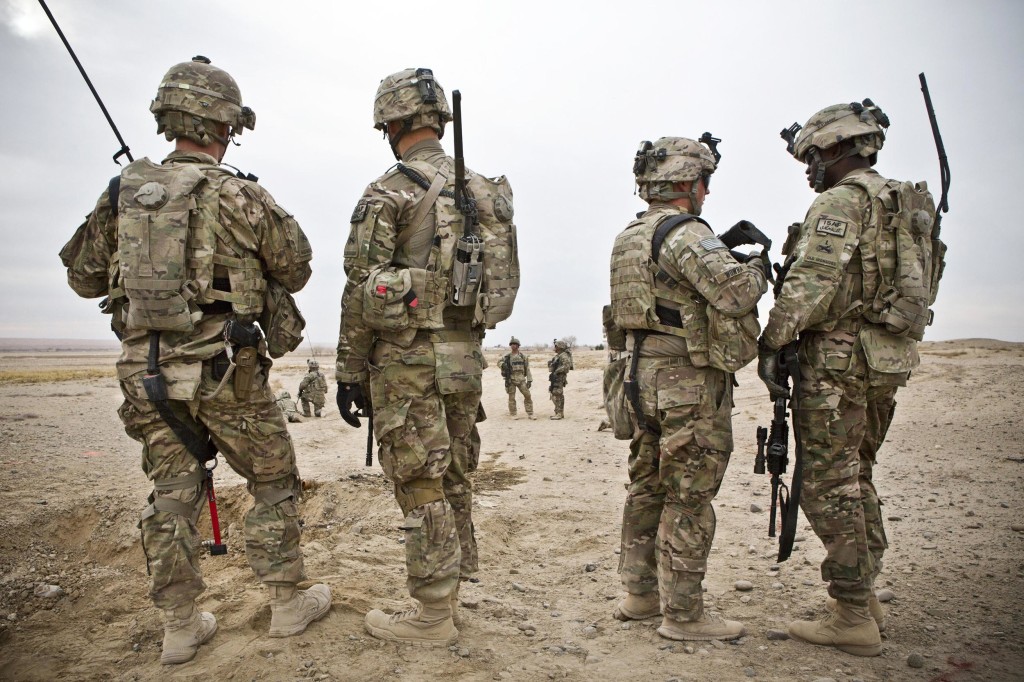Martha Roby: Renewed focus on pilot training good for Fort Rucker

The Defense Appropriations Subcommittee held a budget hearing Thursday where I discussed issues impacting Alabama’s 2nd District with our nation’s top two military officials. Secretary of Defense James Mattis and General Joseph Dunford, Chairman of the Joint Chiefs of Staff, testified about the President’s budget proposal and answered questions from the Subcommittee about military funding and global strategy. Representing a district that is home to the Army Aviation Center of Excellence at Fort Rucker, I took the opportunity to ask about the future of Army Aviation as well as the military’s ability to respond to multiple global threats simultaneously. As I told Secretary Mattis, there aren’t many places the military goes without Army aviators. However, I’m increasingly concerned that our assets and resources are being stretched too thin. Specifically, there is a significant shortage of Apache helicopters, programs like the Light Utility Helicopter look to be underfunded, and we aren’t training enough pilots. Secretary Mattis agreed there is a serious pilot shortage and called it a “national-level problem” that needs to be addressed. “Since near the end of World War II, we have dominated the skies overhead, almost to the point that we could start taking it for granted, which would be a disaster if we did that. It takes a lot of commitment and sacrifice over many years,” Secretary Mattis said. “…we are not creating enough pilots in this environment right now to serve the commercial or service interests. We are going to have to deal with this as a national level problem, and we’ve responded to this sort of thing in the past. We’ve had to dust off a lot of the old thinking and find some new ideas in there. But we are working it right now. We just had the meeting with industry here last month with General Goldfein, our Chief of Staff of the Air Force leading it, but all the Chiefs of Services are engaged.” This is good news for Fort Rucker, the Wiregrass, and the State of Alabama. Because all Army and Air Force rotary wing aviators are trained at Fort Rucker, a renewed focus from the Pentagon on developing more helicopter pilots would potentially benefit the post’s mission. Secretary Mattis also assured me that the new military budget allocates over more than $3 billion for Army Aviation, including the Blackhawks, Apaches, Chinooks, and Lakotas that are part of the training apparatus at Fort Rucker. I appreciate Secretary Mattis’ thoughtful response, and I’m grateful for our nation’s top military official’s commitment to preserving the United States’ air superiority. As the budget process moves forward I am eager to ensure national priorities like Army Aviation are properly funded. I’m honored to serve on Defense Appropriations because it allows me to have a seat at the table for budget and policy discussions like this that will impact the future of the military, including installations in Alabama. I look forward to following up with Secretary Mattis and other military officials about the critical role Fort Rucker plays in our national defense. ••• Martha Roby represents Alabama’s Second Congressional District. She lives in Montgomery, Alabama with her husband Riley and their two children.
Martha Roby meets with military leaders, discusses Alabama installations

Upon returning to Washington, D.C. this week, Alabama 2nd District U.S. Rep. Martha Roby has been meeting with top military leaders to discuss the future of Alabama’s military installations. On Wednesday, Roby met with General David Goldfein, United States Air Force Chief of Staff, to discuss priorities going into the new year, including those related to Maxwell-Gunter Air Force Base in Montgomery. Roby said items on her list to discuss were continuing Maxwell’s unique role in military education, the potential for the Alabama-based 187th Fighter Wing to land the F-35 program, and the the upkeep of on-base military housing, which has concerned community leaders recently. “Maxwell-Gunter Air Force Base is such a vital part of not just the River Region but the entire State of Alabama, and I appreciated the opportunity to discuss Maxwell’s future as the intellectual center of the Air Force,” Roby said of her meeting. “When it comes to the military’s impact on Alabama, there is no shortage of topics. With an incoming presidential administration, there is obviously a lot changing. Part of my job is building relationships with our military leaders so that we can communicate clearly about decisions that will have an effect on Maxwell and other installations around the state.” On Tuesday, Roby met with Army Maj. Gen. Eric Peterson, who oversees Army Aviation at the Pentagon. Fort Rucker in the Wiregrass is home to the Army Aviation Center of Excellence, making this meeting particularly relevant to the 2nd District Congressman. Watch Roby discuss her meeting with General Goldfein below:
Martha Roby: New commander at Fort Rucker

Fort Rucker this week will host a change of command ceremony, a time honored military tradition marking a transition of leadership. Major General William Gayler will officially assume command of the Army Aviation Center of Excellence at Fort Rucker taking the place of the departing commander, Maj. Gen. Michael Lundy. I want to thank Maj. Gen. Lundy for his exemplary leadership at Fort Rucker for the past two years. Fort Rucker is an important post, not just for the Wiregrass region and the State of Alabama, but for our nation and its defense. Every Army aviator is trained at Fort Rucker. Despite the changing landscape of the modern battlefield, Army aviation has remained an essential component of warfare, and Fort Rucker has dutifully delivered the best-trained aviators for assignments all over the world. Commanders like Maj. Gen. Lundy have an enormous responsibility of fulfilling that vital mission while dealing with any number of challenges. Maj. Gen. Lundy’s command of the Army Aviation Center of Excellence came during an especially difficult time, as budget cuts forced military leaders to make tough decisions. It was about this time last year when many feared steep reductions by the Army would significantly affect the post and the surrounding community. Thankfully, the Army’s force reduction had minimal impact on Fort Rucker, and particularly the aviation student load and flight training hours. I can tell you that having Maj. Gen. Lundy’s steady leadership during such moments of uncertainty has been invaluable. The Army has not yet announced Maj. Gen. Lundy’s next assignment. Wherever it is, that organization will be gaining an exceptional leader. Fort Rucker’s new commander, Maj. Gen. William Gayler is a Georgia native who most recently served as the Deputy Commanding General for the U.S. Army in Europe and Commander of U.S. Army NATO. Maj. Gen. Gayler is a Master Army Aviator and has a distinguished service career that includes deployments in Desert Storm, Bosnia conflict, Iraq and Afghanistan. He is also no stranger to Fort Rucker, having previously served in multiple assignments including Aide-de-Camp to the commanding general. On behalf of Alabama’s Second Congressional District, I am pleased to welcome Maj. Gen. Gayler back to our state and wish him the best as he begins his command of Fort Rucker. I look forward to working with him as I have past commanders in supporting the important mission at the Army Aviation Center of Excellence. It is my great honor to serve a district that is home to two of our nation’s finest military installations: Fort Rucker in the Wiregrass and Maxwell-Gunter Air Force Base in Montgomery. Supporting our military and serving veterans remain top priorities for me in Congress and some of the most rewarding parts of my job. • • • Martha Roby represents Alabama’s 2nd Congressional District. She lives in Montgomery, Alabama with her husband, Riley, and their two children.
Martha Roby: Provide for the common defense

Good news: the House of Representatives passed the 2016 National Defense Authorization Act. The NDAA is the annual bill that authorizes spending and policy for the entire military, including programs and efforts at installations in Alabama. This one wasn’t easy, as ill-advised cuts in recent years have left Congress and military leaders with difficult choices. However, I’m pleased to report that this NDAA does right by our troops and authorizes necessary spending levels for the coming year. Specific to Fort Rucker, this year’s NDAA authorizes: $187 million for the procurement of 28 new Lakota helicopters for the Army Aviation Center of Excellence at Fort Rucker; $47 million for elementary school improvements on post at Fort Rucker. Specific to Maxwell-Gunter Air Force Base, the NDAA authorizes: Critical funding for C-130 aircraft improvements, including $75 million for Avionics Modernization Program (AMP) installation and $33.2 million for C-130 engine upgrades; A $10 million budget increase for the Defense Information Systems Agency (DISA), which has a facility at Gunter; $7.6 million to replace the squadron operations facility at Dannelly Field; $33 million for elementary and middle school renovations at Maxwell Air Force Base; and $75 million in cyber operations procurement for the Commander of United States Cyber Command (CYBERCOM). Maxwell’s Air University recently launched the Air Force Cyber College which is focused on instruction in this emerging front of global warfare. The bill also contains important authorizations for military personnel, including a 1.3 percent pay raise for troops, $281 million in funding to ensure commissaries stay open; and empowering commanders to permit service members to carry firearms at installations, reserve centers, and recruiting centers. Overall the 2016 NDAA authorizes $611.9 billion, which includes both the base Department of Defense budget and funds for Overseas Contingency Operations. This is a great deal of taxpayer money, no question. But, I strongly believe that Congress must fulfill its Constitutional responsibility to “provide for the common defense” of this nation by equipping our Armed Forces with everything they need to fight the enemy and deter threats. In fact, one of my top priorities as your Representative in Congress has been to fight against harmful cuts to our military that erode our readiness capabilities and compromise national security. Unfortunately, President Obama had previously threatened to veto this legislation, and some in the Senate may still try to block it. That will not stop me from fighting to get it passed. Over the last year I have been actively building a bi-partisan coalition of lawmakers to make the case for protecting national defense in the budget. Working together, we will fight to build pressure on the Senate and President Obama to enact this 2016 NDAA into law and then follow it with a defense appropriations bill that fills in this funding authority structure. Martha Roby represents Alabama’s 2nd Congressional District. She is currently serving her third term.


